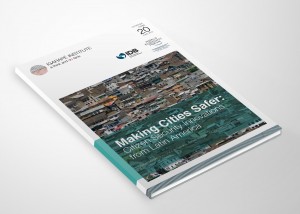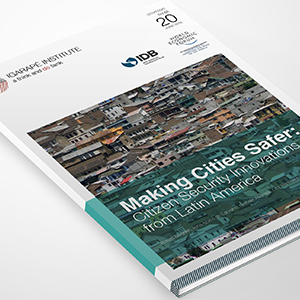Making Cities Safer: Citizen Security Innovations from Latin America
 13 June, 2016
13 June, 2016
By Robert Muggah, Ilona Szabó de Carvalho, Nathalie Alvarado, Lina Marmolejo and Ruddy Wang
Cities are where the policy and practice of citizen security are determined. Although national and subnational strategies are essential to scaling-up crime prevention, cities are where they are put into practice. Because of the way they bring opportunities and risks into focus, cities are natural laboratories of policy innovation to prevent and reduce violence. Some of the most remarkable progress in homicide reduction, crime prevention and public safety in recent decades has occurred in large and medium-sized cities, especially in Latin America and the Caribbean.
This report explores the evidence of what works, and what does not, when it comes to promoting citizen security in Latin American and Caribbean cities. While not exhaustive, the report features a range of positive and less positive experiences of 10 municipalities and metropolitan areas across the region. The goal is to highlight the change in approach from hardline law and order approaches to ones that emphasize multi-sector and preventive measures. The structure of the report is straightforward. Each case study includes a broad overview of the context and problem, a description of the intervention and how it was implemented, and some reflections on the outcomes and impacts.
View PDF


